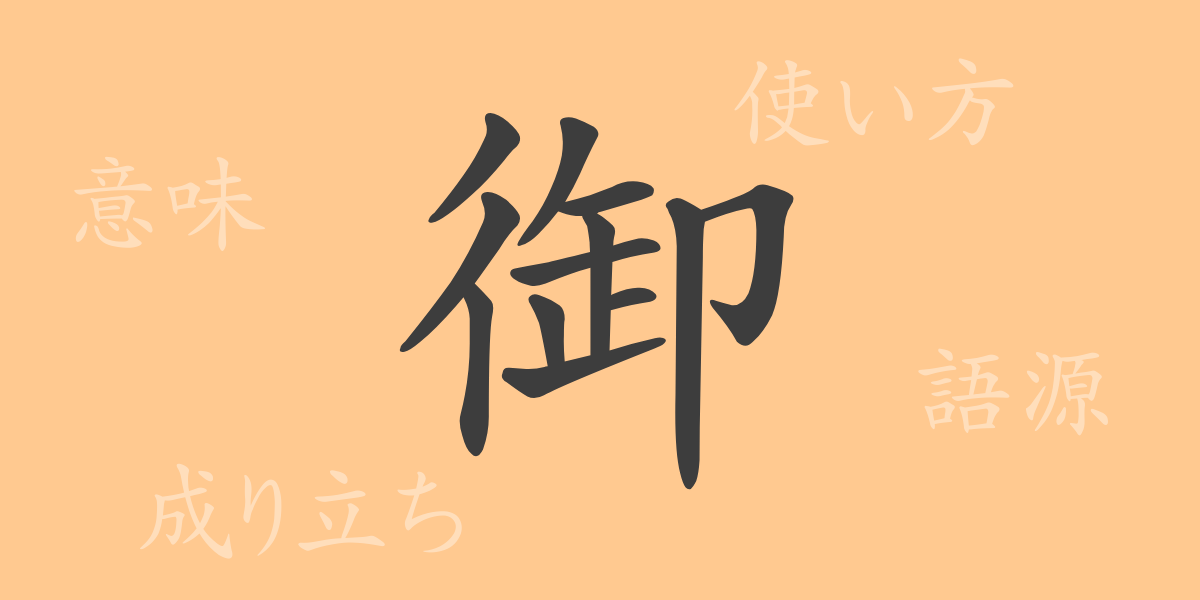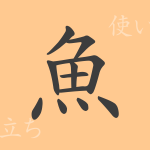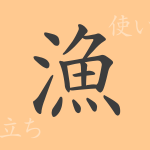In Japanese written language, kanji possess a depth of meaning and beauty that resonate with readers. Among them, the character “御(お, o)” is a special kanji used to express respect and elegance unique to Japanese culture. This article delves into the charm of the commonly used kanji “御(お, o)” from its origins to its meaning, usage, readings, stroke count, and radical. Additionally, we explore the rich expressions in Japanese through idioms and proverbs that incorporate “御(お, o).”
Origin of 御(お, o)
The kanji “御(お, o)” originated from ancient Chinese characters, where it was used as a prefix to convey respect and reverence. After being introduced to Japan, it came to be used with particular respect in Japanese culture and language. This character combines the radical “卸” on top and “攵” on the bottom, symbolizing actions like “lowering” or “offering,” which conveys a sense of deference and respect.
Meaning and Usage of 御(お, o)
The character “御(お, o)” is primarily used as a prefix to express respect. It is often placed before people or objects to show esteem. For instance, “御家族(ごかぞく, gokazoku)” (your family), “御社(おんしゃ, onsha)” (your company), and “御飯(ごはん, gohan)” (meal) are examples where “御(お, o)” is used to convey respect. Additionally, it is used in adjectives and verbs to create more polite expressions, such as “御大(おおき, oki)” (great) and “御覧になる(ごらんになる, goran ni naru)” (to see/view).
Readings, Stroke Count, and Radical of 御(お, o)
The kanji “御(お, o)” has various readings in Japanese, with the most common being the on-yomi (Chinese readings) “おん(on)” and “ぎょ(gyo),” and the kun-yomi (Japanese readings) “お(o)” and “ご(go).” Here are the details:
- Readings: On-yomi – “おん(on),” “ぎょ(gyo)”; Kun-yomi – “お(o),” “ご(go)”
- Stroke count: 12 strokes
- Radical: 攵 (のぶん, nobun)
Idioms, Proverbs, and Phrases Using 御(お, o)
The kanji “御(お, o)” is found in numerous idioms, proverbs, and phrases in Japanese. Here are a few examples:
- 御中(おんちゅう, onchuu): Used in letters or emails following an organization’s name.
- 御前(おんまえ, onmae): Refers to the presence of someone directly.
- 御免ください(ごめんください, gomenkudasai): A polite expression used when seeking permission to enter someone’s house.
- 御膳立て(ごぜんだて, gozendate): Refers to the preparation or arrangement for starting something.
Summary of 御(お, o)
The meaning embedded in each kanji reflects the culture and history of the country. The character “御(お, o)” is one of the essential kanji used to express the Japanese sense of respect and consideration. Using “御(お, o)” in daily conversations and written language demonstrates respect for others and facilitates smoother communication. Thus, the kanji “御(お, o)” continues to be cherished in expressing the beauty and spirit of courtesy in the Japanese language.

























